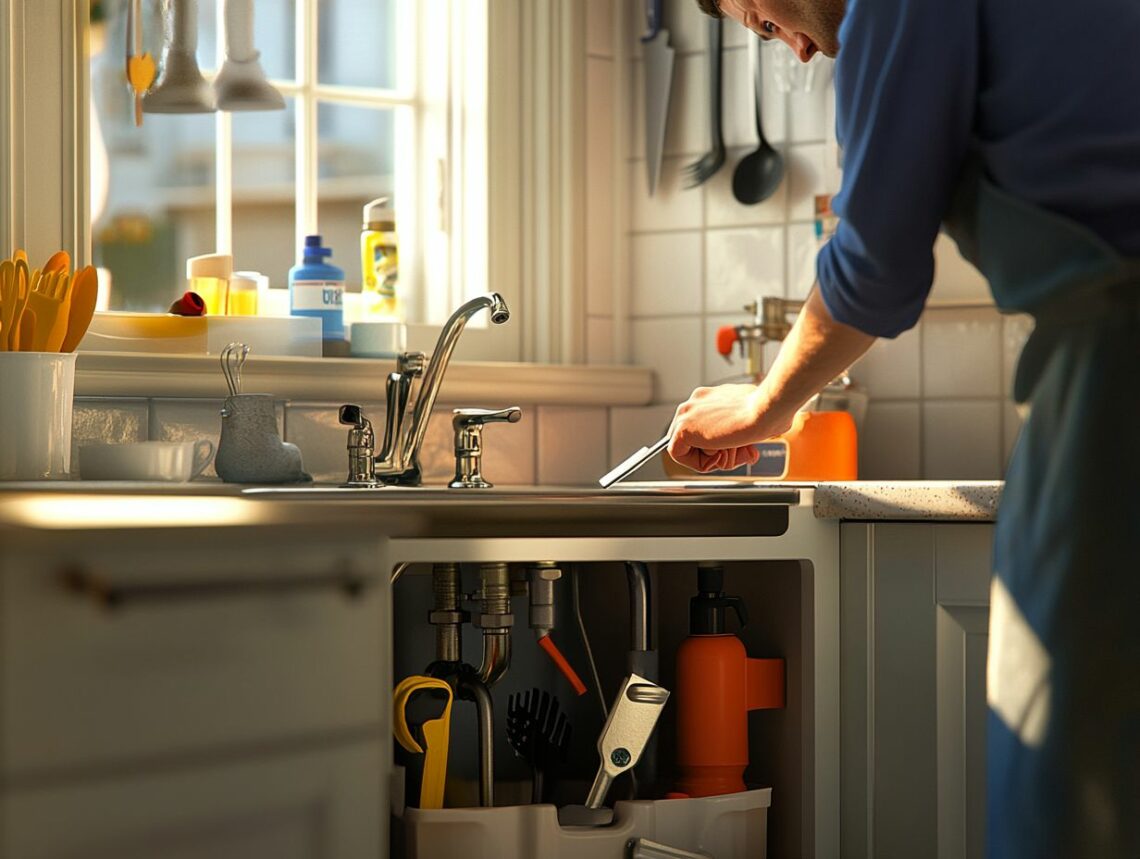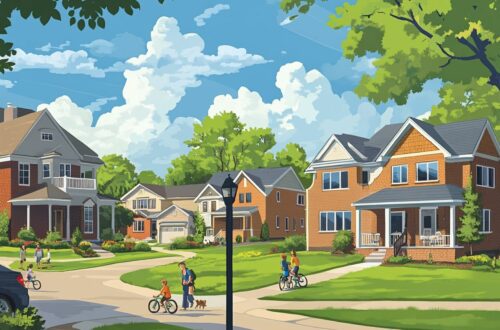
How to Maintain Your Home’s Plumbing System
Maintaining your home’s plumbing system is essential for ensuring a comfortable and efficient living environment.
Regular care can prevent costly repairs and extend the lifespan of your plumbing fixtures.
Discover the importance of routine maintenance, understand your plumbing system, and learn practical:
- Daily upkeep tips.
- Weekly upkeep tips.
- Monthly upkeep tips.
Also covered are signs that indicate your plumbing needs attention and when it’s best to call a professional.
By following these guidelines, you can keep your plumbing healthy and functioning smoothly.
Importance of Regular Plumbing Maintenance

Regular plumbing maintenance is essential for homeowners, as it effectively prevents leaks, clogs, and other plumbing issues that could result in significant damage and expensive repairs.
Conducting routine inspections and servicing can greatly minimize unexpected emergencies that disrupt daily life, thereby protecting families from urgent plumbing situations that tend to occur at the most inconvenient times.
Investing in regular upkeep enhances the longevity and efficiency of appliances and fixtures, ensuring they function optimally while also conserving water and energy. This not only leads to reduced utility bills but also diminishes the likelihood of more substantial, costly problems in the future.
Ultimately, proactive maintenance contributes to a safer and more comfortable living environment, making it a prudent decision for responsible homeowners.
Understanding Your Plumbing System
A comprehensive understanding of the plumbing system is essential for homeowners, as it comprises various interconnected components, including pipes, drains, fixtures, and water heating systems.
Each of these elements plays a crucial role in the efficient delivery of water and the disposal of waste.
Daily Maintenance Tips
Implementing daily maintenance practices can substantially minimize the risk of plumbing issues, including leaks and clogs. This proactive approach offers homeowners peace of mind and ensures that essential fixtures such as faucets, toilets, and garbage disposals operate at optimal efficiency.
Kitchen Maintenance
Kitchen maintenance is a critical component of a homeowner’s plumbing care routine, emphasizing key areas such as drains and garbage disposals to prevent clogs and leaks.
By adopting specific maintenance practices, individuals can significantly extend the lifespan of their kitchen plumbing systems. For example, proper waste disposal involves not only refraining from placing garbage in the sink but also ensuring that substances such as grease and food scraps are not washed down, as these can lead to significant blockages.
Regular inspections for leaks around fixtures are essential, as even minor leaks can develop into more serious problems if not addressed promptly. Thorough cleaning of drains is important for removing built-up debris, thereby promoting smoother water flow and reducing unpleasant odors.
Prioritizing these maintenance practices contributes to a healthy kitchen environment and enhances the overall efficiency of plumbing systems.
Bathroom Maintenance
Bathroom maintenance is essential for ensuring the proper functioning of plumbing fixtures such as toilets and sinks, thereby preventing leaks and clogs that can disrupt daily activities.
Regular inspections can yield significant benefits; for instance, checking toilets for leaks involves observing for water accumulation around the base or within the tank. Additionally, consistent drain cleaning can remove buildup that leads to unpleasant odors and slow drainage. It is also prudent to monitor the water flow from faucets and showerheads, as mineral deposits can lead to inefficiencies over time.
Proper maintenance of these fixtures is crucial, as it not only extends their lifespan but also ensures a smooth plumbing experience, ultimately enhancing the overall comfort and functionality of the bathroom.
Weekly Maintenance Tasks

Conducting weekly maintenance tasks is an effective strategy for proactively addressing potential plumbing issues. This approach ensures that systems such as drains and fixtures are functioning optimally, thereby minimizing the risk of leaks and clogs.
Monthly and Seasonal Plumbing Checklists
Monthly and seasonal plumbing checklists are crucial for homeowners to ensure thorough maintenance of their plumbing systems. These checklists address critical areas, including water heaters, outdoor spigots, and plumbing leaks, thereby promoting optimal performance and longevity throughout the year.
Inspecting Outdoor Spigots
Inspecting outdoor spigots is an essential maintenance task that ensures the integrity of your plumbing system and prevents leaks, particularly during seasonal transitions such as winterization.
By routinely checking these fixtures, homeowners can avert potential water damage and avoid costly repairs associated with leaks.
Begin by conducting a visual inspection of the spigots for any signs of corrosion or damage; any visible wear may indicate the necessity for replacement.
Next, turn on the faucet and carefully observe for any leaks at the handle or spout. Should any issues be detected, it is imperative to address them promptly, as neglecting these concerns can lead to further complications.
Once the spigot has been confirmed to function properly, ensure that it is fully shut off. In preparation for colder months, it is crucial to drain the water from the spout and any attached hoses to prevent freezing, thereby ensuring that your outdoor plumbing is adequately prepared to withstand lower temperatures.
Water Heater Maintenance
Water heater maintenance is essential for homeowners to ensure that their systems function efficiently, minimize leaks, and maximize energy savings while delivering hot water as needed.
Regular inspections are critical in identifying potential issues before they escalate, thereby protecting against unexpected breakdowns. Flushing sediment buildup can significantly enhance the efficiency and longevity of heating systems. Additionally, checking for leaks not only helps prevent water damage but also contributes to maintaining optimal performance levels.
Monitoring the heater’s efficiency allows for timely adjustments and maintenance, ensuring a consistent supply of hot water. Ultimately, prioritizing these maintenance tasks enhances the unit’s performance and provides peace of mind, knowing that the home remains a reliable and comfortable environment.
Cleaning Gutters and Sump Pumps
Maintaining clean gutters and regularly checking sump pumps is a critical yet often overlooked aspect of plumbing maintenance that can effectively prevent leaks and water damage within residential properties.
Neglecting these essential components may result in significant issues, including foundation erosion, mold proliferation, and structural damage, all of which can incur substantial repair costs. Gutters play a vital role in directing rainwater away from the roof and foundation; however, when obstructed by leaves, twigs, and other debris, they can overflow, causing water to accumulate around the base of the house.
In a similar vein, a sump pump that is not operating at peak efficiency may fail during periods of heavy rainfall, resulting in flooding within basements. To ensure the proper functioning of these systems, it is advisable for homeowners to clean gutters at least twice a year and conduct regular inspections of sump pumps, making it a routine to remove debris and verify operational effectiveness.
Signs Your Plumbing Needs Attention

It is essential for homeowners to recognize the signs indicating that their plumbing requires attention, as prompt action can prevent minor issues from developing into significant plumbing problems, such as leaks and clogs.
Identifying Potential Leaks
Identifying potential leaks in a plumbing system is crucial for preventing water damage and maintaining the integrity of a residence. Therefore, regular inspections should be considered an essential practice for homeowners.
Being vigilant for signs such as unexplained increases in water bills, damp spots on walls or ceilings, and the presence of mold can provide early indications that an issue may exist. Homeowners should also monitor for dripping faucets or toilets that run unexpectedly, as these may signify minor leaks that, if left unaddressed, could develop into more significant problems.
Utilizing methods such as visual inspections, water meter assessments, and professional leak detection services can yield comprehensive insights into the condition of the plumbing system. Addressing any identified leaks promptly not only conserves water but also helps to prevent costly repairs and health hazards associated with mold growth and structural damage.
Recognizing Clogs and Slow Drains
Recognizing clogs and slow drains is essential for homeowners to maintain a functional plumbing system, as these issues can quickly escalate into more severe plumbing problems if left unaddressed.
The ability to identify early signs of a clog is critical; indicators such as slow drainage, gurgling sounds, or unpleasant odors often serve as warnings that something is amiss.
Common causes of these disruptions may include accumulated grease, hair, soap scum, or foreign objects lodged in the pipes. Additionally, tree roots infiltrating sewer lines can also contribute to clogged systems.
Regular maintenance—such as clearing out debris, utilizing drain screens, and conducting periodic inspections—can significantly decrease the likelihood of encountering such plumbing issues.
By implementing proactive measures, homeowners can effectively save time, reduce costs, and mitigate the inconvenience associated with unexpected plumbing emergencies.
Monitoring Water Pressure Issues
Monitoring water pressure issues is critical for homeowners, as abnormal pressure levels may indicate underlying plumbing problems that can lead to leaks or inefficient water delivery.
Regularly checking water pressure allows homeowners to ascertain whether it falls within the normal range, typically between 40 and 60 psi. Deviations from this standard can result in various complications, including worn-out fixtures, burst pipes, or reduced flow rates. Homeowners should employ pressure gauges or consult with plumbing professionals to effectively assess their system.
If the pressure is excessively high, it can impose strain on the plumbing infrastructure, necessitating the installation of pressure-reducing valves. Conversely, low pressure can lead to insufficient water supply for daily activities.
Therefore, understanding and addressing these fluctuations is essential for maintaining an efficient plumbing system.
Best Practices for Drain Care
Implementing best practices for drain care is essential for homeowners to prevent clogs and to ensure the efficient operation of their plumbing systems.
Using Drain Covers and Strainers

Utilizing drain covers and strainers is a straightforward yet effective approach for homeowners to prevent clogs and safeguard their plumbing systems from debris and waste.
These devices serve as the primary line of defense against undesirable materials, such as hair, food particles, and soap scum, which can accumulate in pipes over time. By investing in high-quality drain covers and strainers, individuals can enhance overall plumbing efficiency and diminish the likelihood of incurring costly repairs.
When selecting these essential tools, it is crucial to choose a size and design that is compatible with the specific drains in kitchens and bathrooms, thereby ensuring optimal effectiveness. Regular cleaning and maintenance of these devices will further improve their functionality, facilitating uninterrupted drainage while extending the lifespan of the plumbing system.
Avoiding Chemical Drain Cleaners
Avoiding chemical drain cleaners is recommended for homeowners who wish to protect their plumbing systems, as these substances can inflict damage on pipes, potentially resulting in leaks and further clogs.
Plus jeopardizing the integrity of plumbing, these harsh chemicals can also pose significant health risks to individuals and pets within the household. Prolonged exposure to their fumes may irritate the respiratory system and skin, while improper disposal can adversely affect local ecosystems.
Homeowners should consider safer alternatives for addressing slow drains or clogs. Effective methods, such as utilizing a plunger, can dislodge blockages, while a mixture of baking soda and vinegar can naturally break down debris.
Regular maintenance practices, such as flushing drains with hot water or employing a drain snake, can assist in keeping pipes clear without resorting to harmful substances.
When to Call a Professional Plumber
Recognizing the appropriate time to engage a professional plumber is essential for homeowners, as certain plumbing issues can be intricate and necessitate expert intervention. This is vital to prevent additional damage and ensure safety within the household.
Complex Issues Beyond DIY
Complex plumbing issues that exceed basic DIY tasks often necessitate the expertise of a professional plumber to ensure appropriate repairs and prevent further complications.
For example, a significant leak in the foundation of a home or a complex network of pipes concealed behind walls requires specialized tools and technical knowledge. These situations can pose substantial risks to the integrity of the structure if not addressed appropriately.
Professional plumbers possess the skills to assess and resolve problems such as broken fittings, extensive damage to sewer lines, or the installation of a new water heater, ensuring that all work complies with local codes and safety regulations.
Engaging qualified experts not only conserves time and mitigates potential challenges but also provides peace of mind, knowing that the plumbing system is being managed by capable professionals.
Emergency Situations
Emergency plumbing situations require immediate attention from qualified professionals, as any delays can result in significant damage and increased repair costs.
In instances such as burst pipes or severe leaks, it is imperative for homeowners to act swiftly to mitigate the situation. Initially, they should locate the main water shut-off valve to prevent further flooding, followed by an assessment of the affected area for potential hazards, including electrical risks.
Once the situation is contained, it is essential to contact a reputable plumbing service for professional assistance. These experts are equipped to accurately diagnose the problem, provide effective solutions, and ensure the plumbing system is restored safely and promptly. This proactive approach ultimately saves homeowners time and money in the long run.
Long-Term Plumbing Care Strategies
Implementing long-term plumbing care strategies is crucial for homeowners seeking to preserve the integrity of their plumbing systems and prevent costly repairs and emergencies.
Winterizing Your Plumbing System
Winterizing the plumbing system is essential for homeowners residing in colder climates. This process helps prevent the freezing of pipes and the potential leaks that could lead to substantial damage during the winter months.



